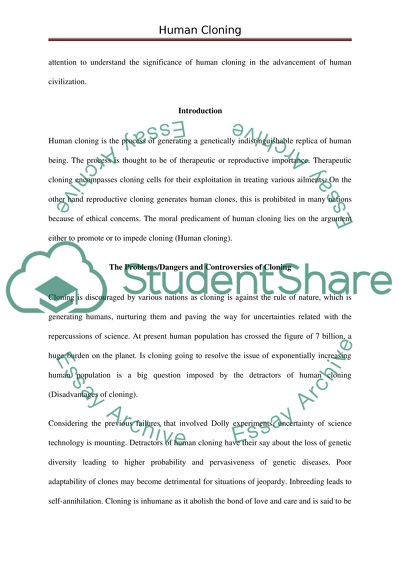Cite this document
(“Human Cloning Research Paper Example | Topics and Well Written Essays - 1500 words”, n.d.)
Retrieved from https://studentshare.org/biology/1435630-the-controversy-over-human-cloning
Retrieved from https://studentshare.org/biology/1435630-the-controversy-over-human-cloning
(Human Cloning Research Paper Example | Topics and Well Written Essays - 1500 Words)
https://studentshare.org/biology/1435630-the-controversy-over-human-cloning.
https://studentshare.org/biology/1435630-the-controversy-over-human-cloning.
“Human Cloning Research Paper Example | Topics and Well Written Essays - 1500 Words”, n.d. https://studentshare.org/biology/1435630-the-controversy-over-human-cloning.


